```
# 开发流程:创建和使用第三方库、API 集成、应用开发
## 1. 三方库的创建与应用
在上周的课程中,我们介绍了如何创建和使用三方库。从三方库的创建、查找、移植到发布,我们详细讨论了整个流程。希望大家能够参与到三方库的开发中,不仅能够提高开发效率,还能贡献到开源社区。
### 1.1 三方库的创建与实现
- **创建静态库**:在开发过程中,首先需要创建一个静态库,这是整个三方库的核心部分。在库中实现具体的功能(如房贷计算工具)。
- **接口暴露**:实现功能后,需通过适当的接口暴露这些功能,使得其他模块能够调用。
- **开发解耦**:通过将功能模块解耦,方便后续的开发和维护。
### 1.2 三方库的发布方式
- **本地路径引入**:可以选择将库存放在本地,通过相对路径引用进行使用。
- **发布到 OHPM 仓库**:将库发布到 OHPM 仓库,其他开发者通过 `OHPM install` 命令来安装和使用。
## 2. 开源和社区参与
### 2.1 开源项目的重要性
参与开源项目不仅能够提升自己的开发技能,还能通过分享代码和经验,让更多开发者受益。无论是发布功能库,还是分享使用教程,都有助于增强开发者社区的活力。
- **参与共建**:通过贡献代码和文档,能够和其他开发者一起进步,解决实际问题。
- **知识分享**:把开发经验和技术总结分享出来,能帮助他人,同时也能够为自己积累更高的声誉。
## 3. 开发实战:汇率计算应用
今天我们将演示一个简单的应用开发过程,通过创建一个汇率计算应用,帮助大家更好地理解如何在实际项目中应用三方库。
### 3.1 创建项目
1. **选择模板**:选择一个空模板开始创建项目。
2. **输入项目名称**:比如输入“汇率计算”作为项目名称。
3. **设置目标 API 版本**:确保项目能够兼容目标 API 版本(例如从 API 9 升级到 API 12)。

### 3.2 集成第三方 API
- **汇率计算接口**:我们通过一个免费的汇率计算 API 来获取汇率数据。你可以通过接口地址和请求参数来获取转换后的汇率数据。
https://www.alapi.cn
```text
API 地址:<API地址>
请求方式:GET / POST
请求参数:token, money, from, to
返回参数:汇率数据等
```

接口地址:https://v2.alapi.cn/api/exchange

请求方法: [ "GET", "POST" ]
请求参数:
| 参数名 | 类型 | 必填 | 描述 |
| ------ | ------ | ---- | -------------- |
| token | string | 是 | 请求唯一凭证 |
| money | number | 是 | 需要转换的金额 |
| from | string | 是 | 需要转换的货币 |
| to | string | 是 | 转换后的货币 |
### 3.3 实现功能
1. **请求接口**:通过 HTTP 请求获取汇率数据。
2. **处理数据**:解析返回的 JSON 数据,并将其显示在界面上。
### 3.4 HTTP 请求实现
在项目中,使用 `HTTP` 请求来获取汇率数据。这里我们使用 `GET` 或 `POST` 请求方式,并传递相关参数。
[HTTP数据请求](https://developer.huawei.com/consumer/cn/doc/atomic-guides-V5/atomic-http-request-V5)
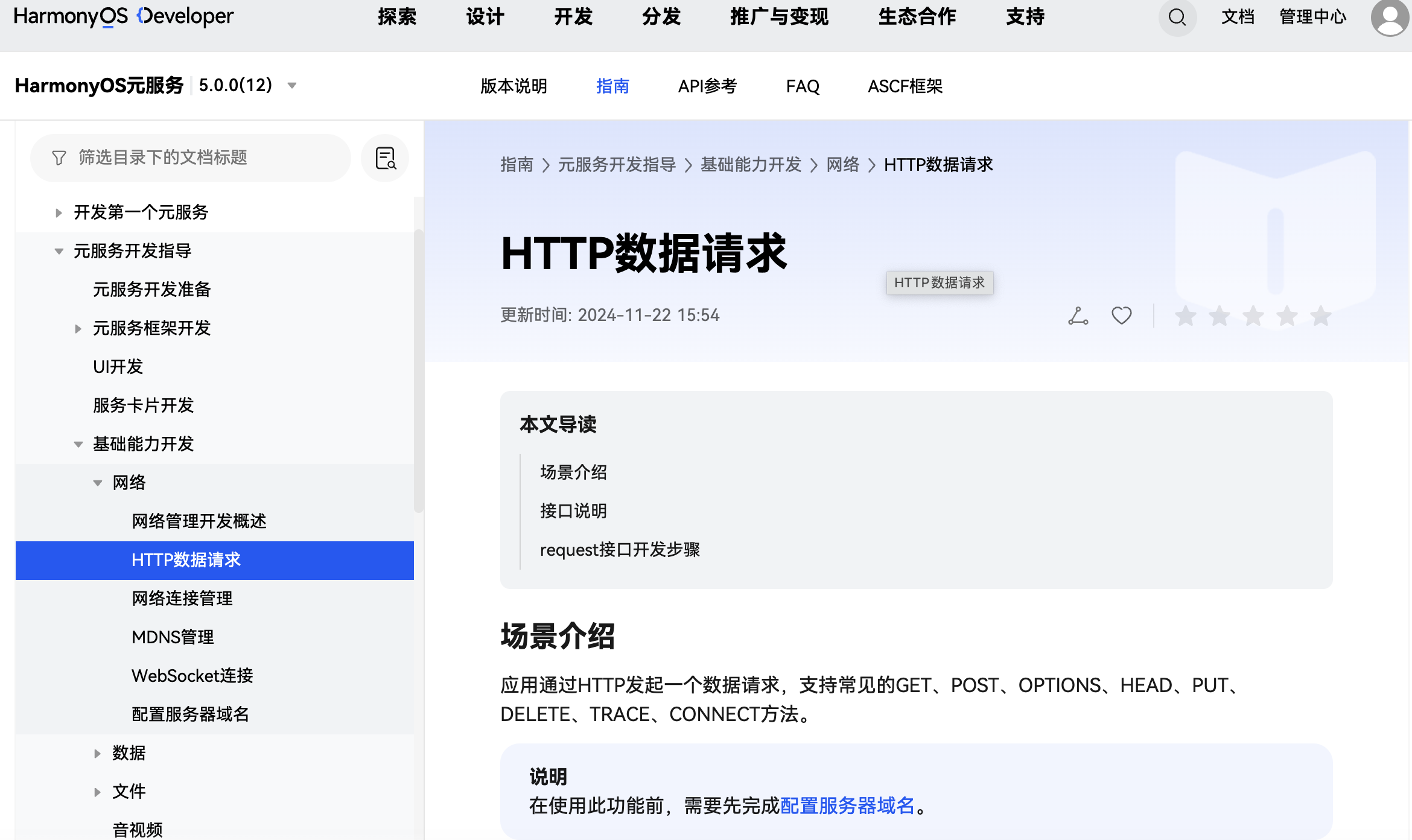
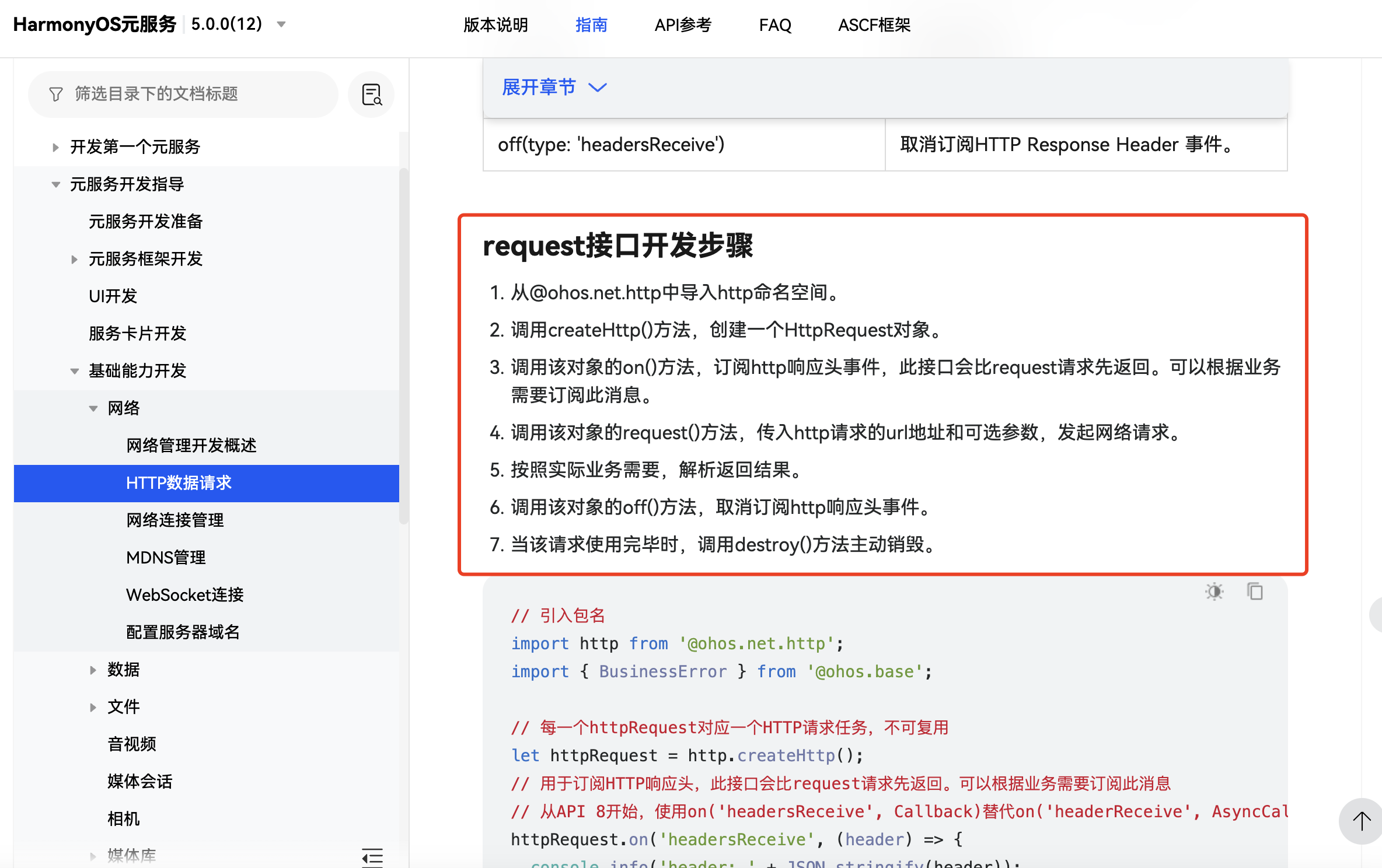
request接口开发步骤
1.从@ohos.net.http中导入http命名空间。
```javascript
// 引入包名
import http from '@ohos.net.http';
import { BusinessError } from '@ohos.base';
```
2.调用createHttp()方法,创建一个HttpRequest对象。
```javascript
// 每一个httpRequest对应一个HTTP请求任务,不可复用
let httpRequest = http.createHttp();
```
3.调用该对象的on()方法,订阅http响应头事件,此接口会比request请求先返回。可以根据业务需要订阅此消息。
```javascript
// 用于订阅HTTP响应头,此接口会比request请求先返回。可以根据业务需要订阅此消息
// 从API 8开始,使用on('headersReceive', Callback)替代on('headerReceive', AsyncCallback)。
httpRequest.on('headersReceive', (header) => {
console.info('header: ' + JSON.stringify(header));
});
```
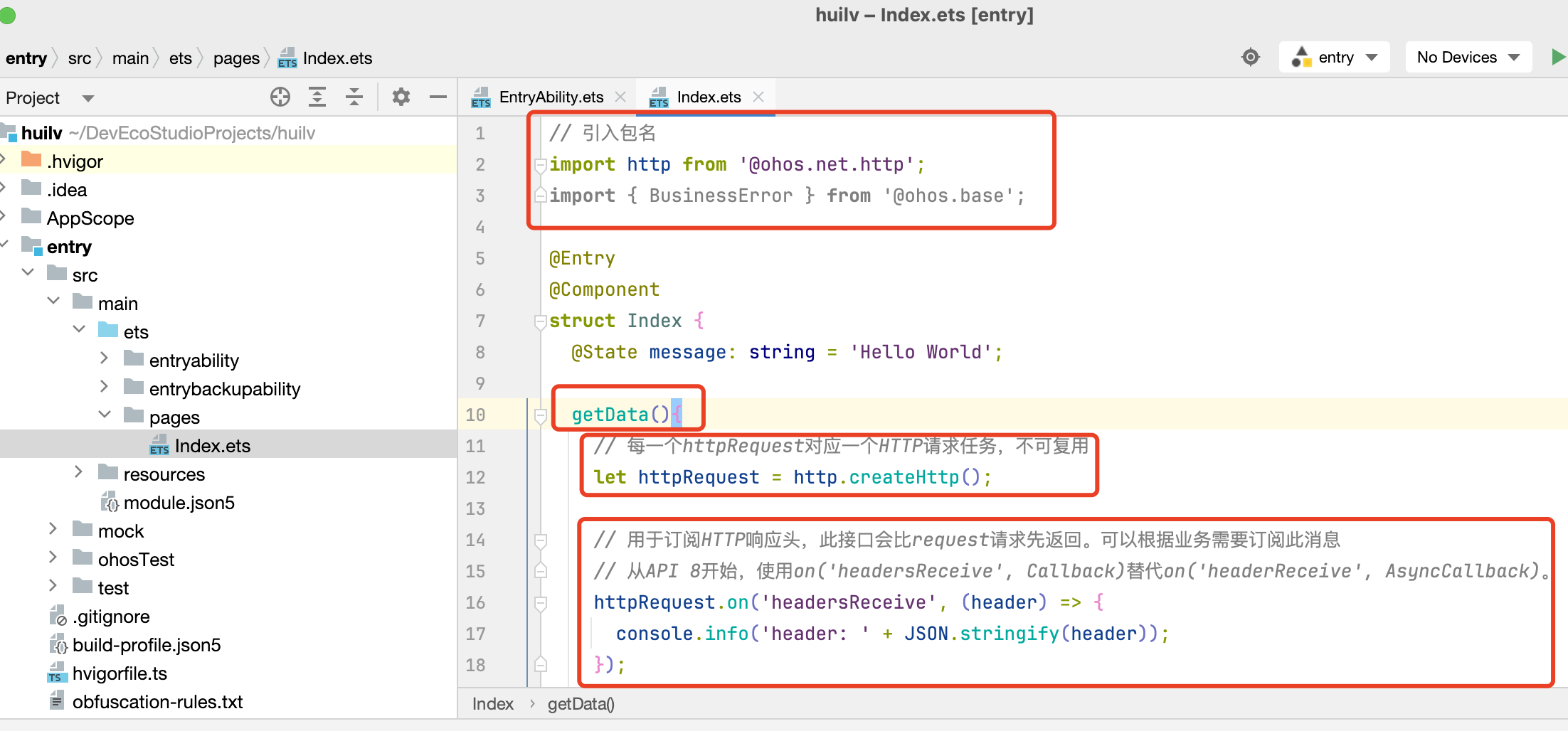
4.调用该对象的request()方法,传入http请求的url地址和可选参数,发起网络请求。
```javascript
httpRequest.request(
// 填写HTTP请求的URL地址,可以带参数也可以不带参数。URL地址需要开发者自定义。请求的参数可以在extraData中指定
"EXAMPLE_URL",
{
method: http.RequestMethod.POST, // 可选,默认为http.RequestMethod.GET
// 开发者根据自身业务需要添加header字段
header: {
'Content-Type': 'application/json'
},
// 当使用POST请求时此字段用于传递请求体内容,具体格式与服务端协商确定
extraData: "data to send",
expectDataType: http.HttpDataType.STRING, // 可选,指定返回数据的类型
usingCache: true, // 可选,默认为true
priority: 1, // 可选,默认为1
connectTimeout: 60000, // 可选,默认为60000ms
readTimeout: 60000, // 可选,默认为60000ms
usingProtocol: http.HttpProtocol.HTTP1_1, // 可选,协议类型默认值由系统自动指定
usingProxy: false, // 可选,默认不使用网络代理,自API 10开始支持该属性
}, (err: BusinessError, data: http.HttpResponse) => {
if (!err) {
// data.result为HTTP响应内容,可根据业务需要进行解析
console.info('Result:' + JSON.stringify(data.result));
console.info('code:' + JSON.stringify(data.responseCode));
// data.header为HTTP响应头,可根据业务需要进行解析
console.info('header:' + JSON.stringify(data.header));
console.info('cookies:' + JSON.stringify(data.cookies)); // 8+
// 当该请求使用完毕时,调用destroy方法主动销毁
httpRequest.destroy();
} else {
console.error('error:' + JSON.stringify(err));
// 取消订阅HTTP响应头事件
httpRequest.off('headersReceive');
// 当该请求使用完毕时,调用destroy方法主动销毁
httpRequest.destroy();
}
}
);
```
将复制的代码改造,输入刚才的接口
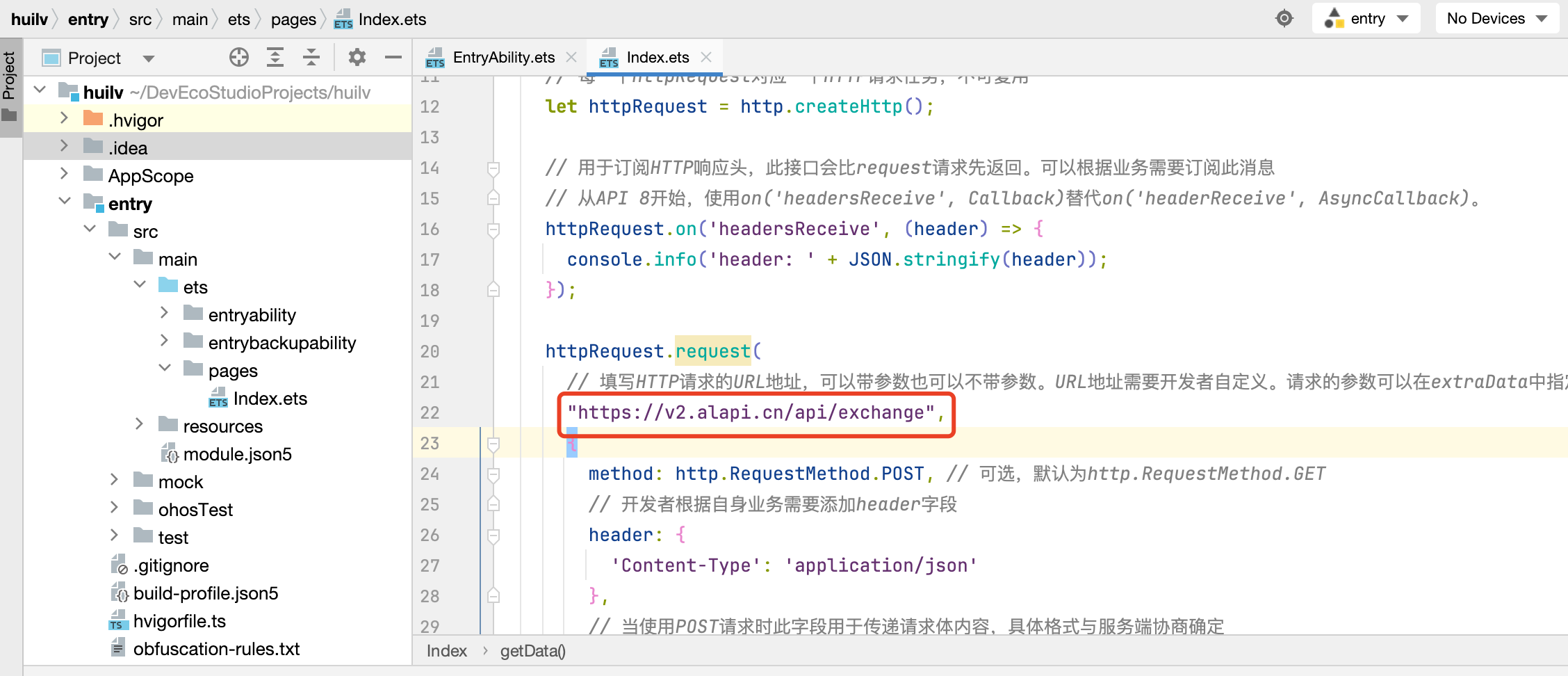
使用 post 请求,可以在extraData里面去输入额外的一个参数。可以去输入这 4 个参数,token ,money ,from ,to

示例:
登录领取token


输入参数:
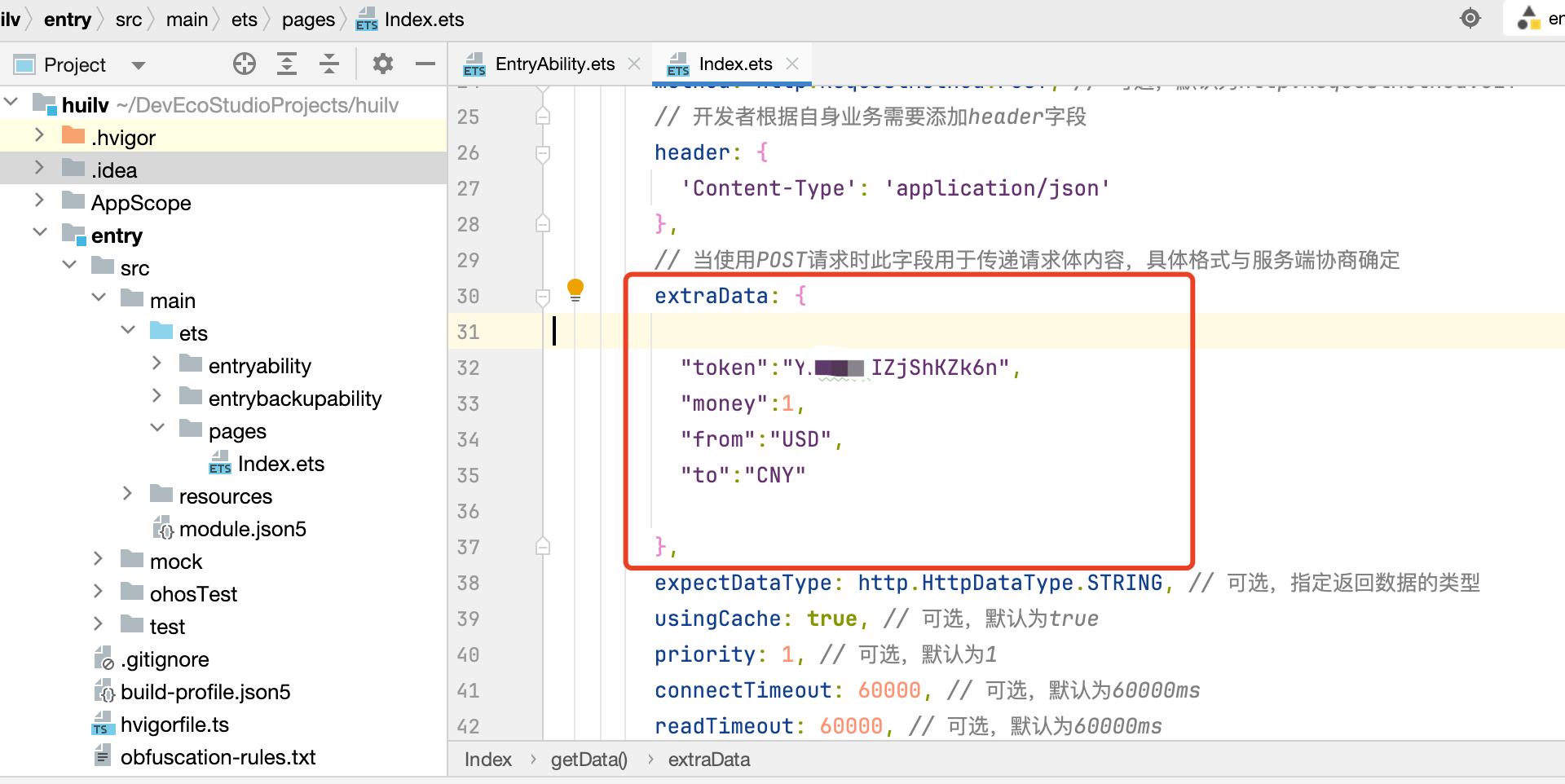
5.按照实际业务需要,解析返回结果。
⚠️添加网络权限
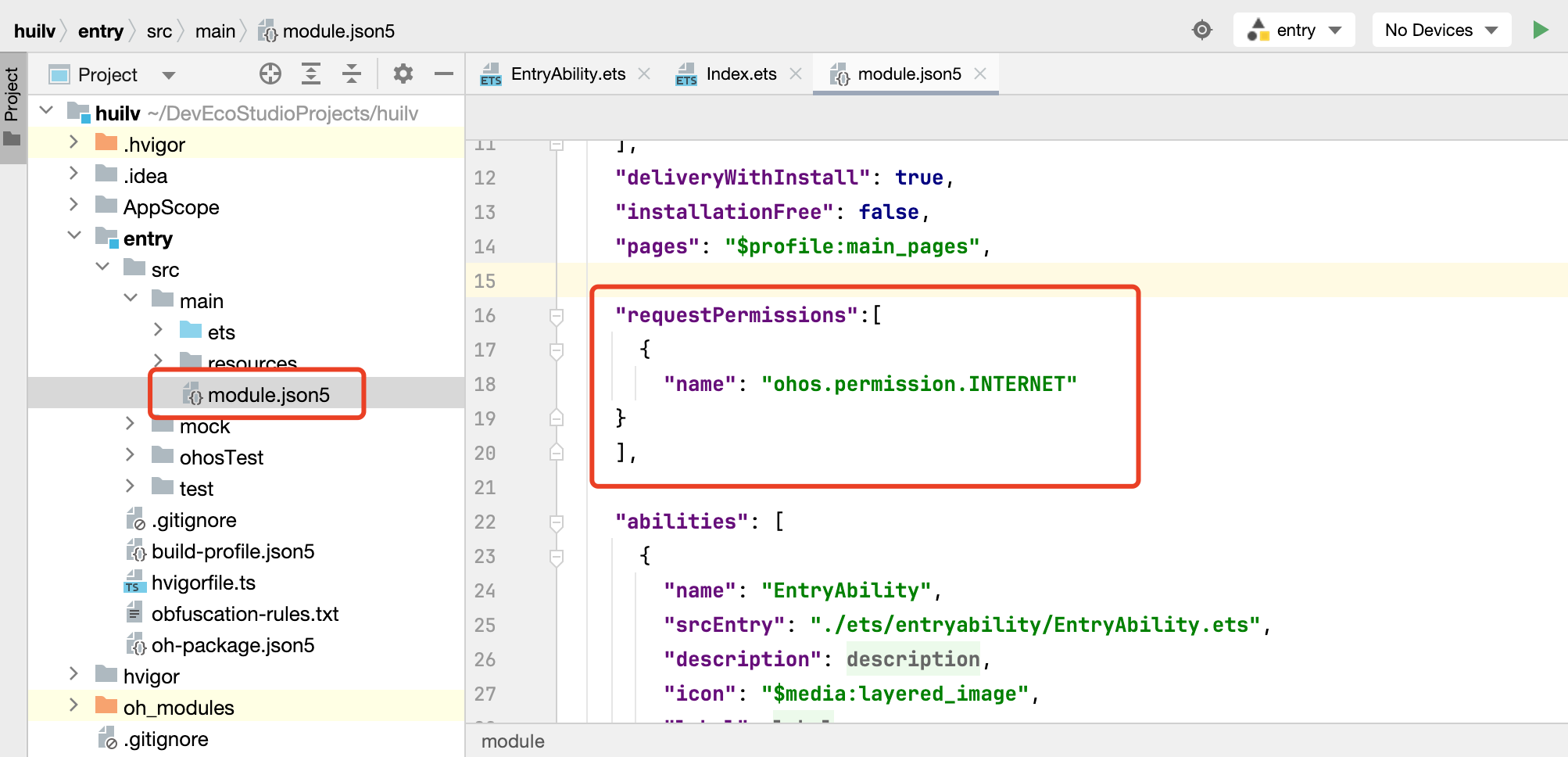
以post 为例,测试一下,看返回的结果
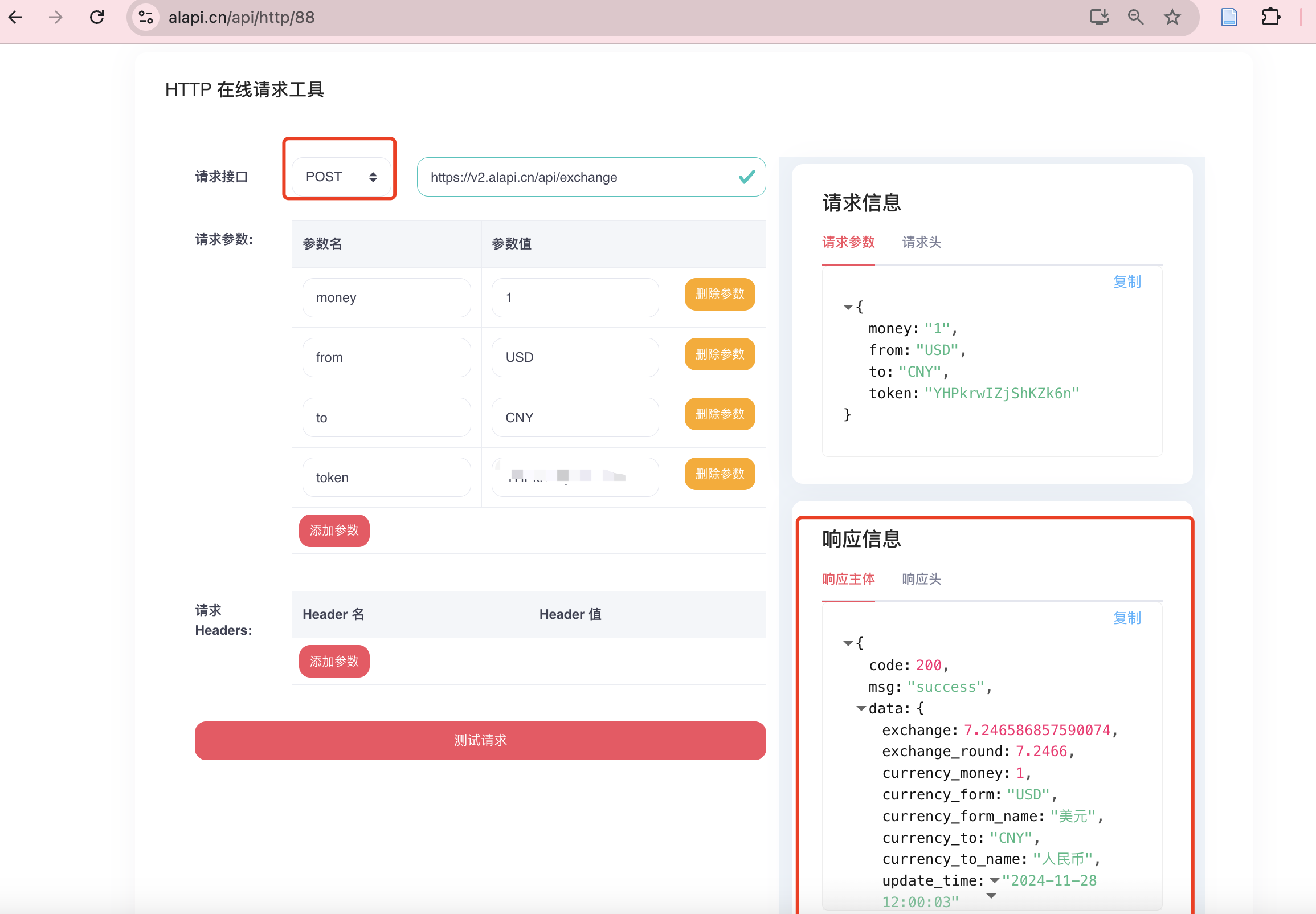
如何解析?
有对应的一个工具,或者也可以自己去手写
在etc下面,新建一个model的一个文件夹,去专门处理我们的一个定义好的这个模型,模型里面我们就可以去处理我们的对应的一个数据。
新建一个ArkTS File文件exchange

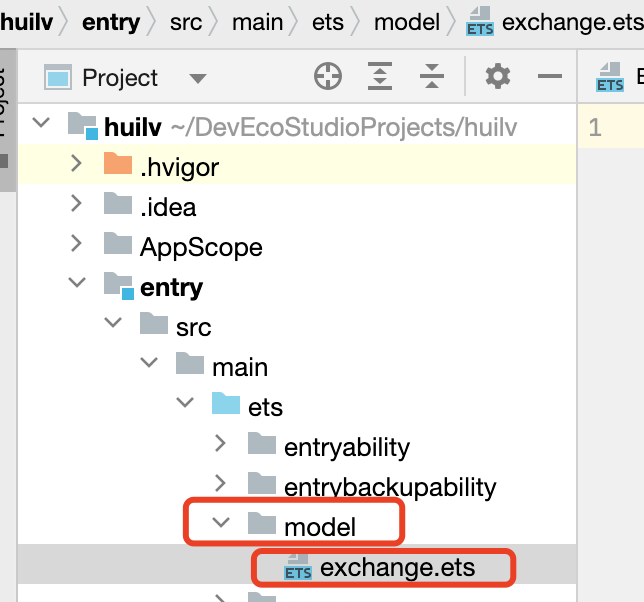
可以使用Json2ets,去解析我们的一个json数据,把数据定义好,然后去解析。
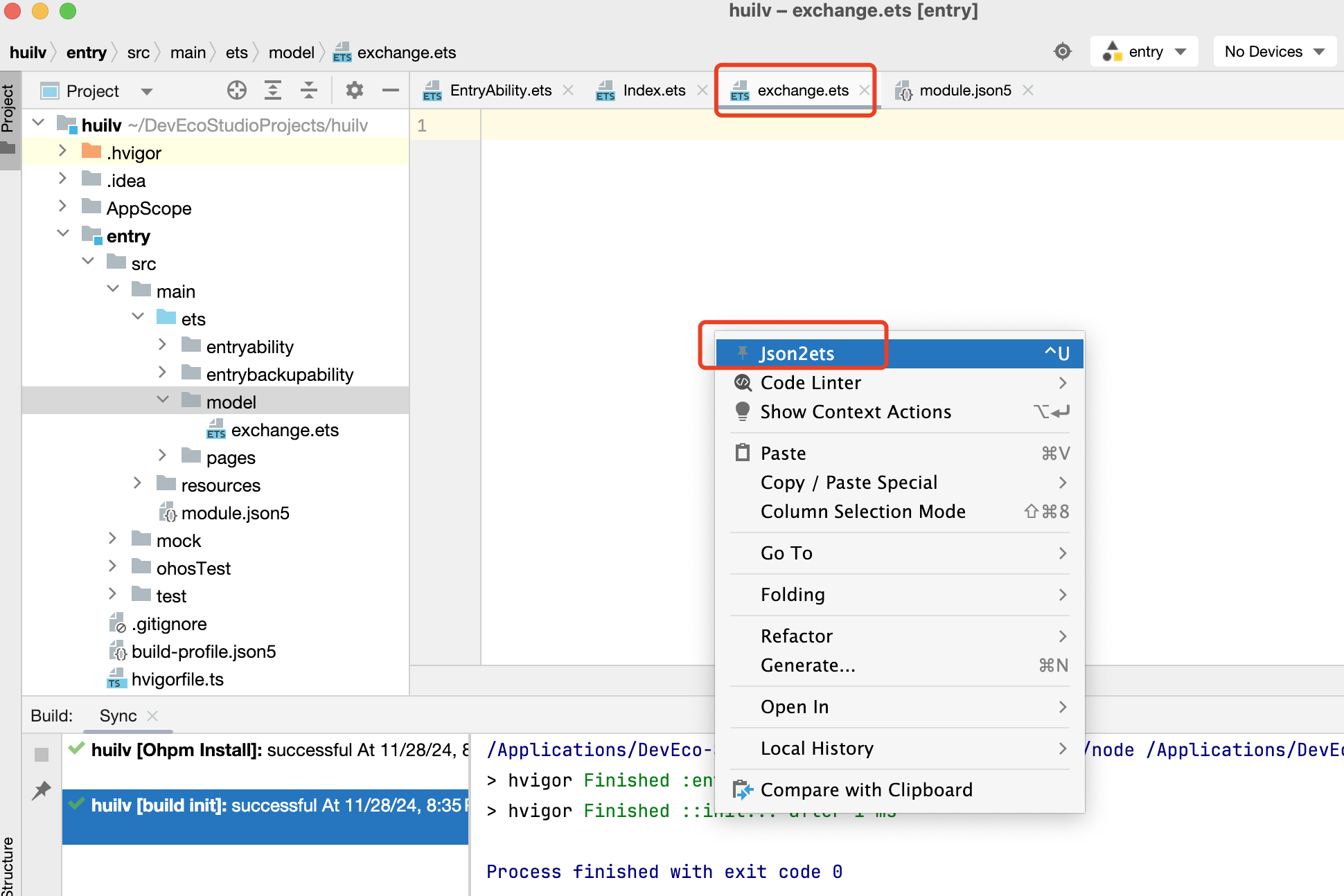
[Jsonets插件下载地址](https://plugins.jetbrains.com/plugin/24930-jsonformat)
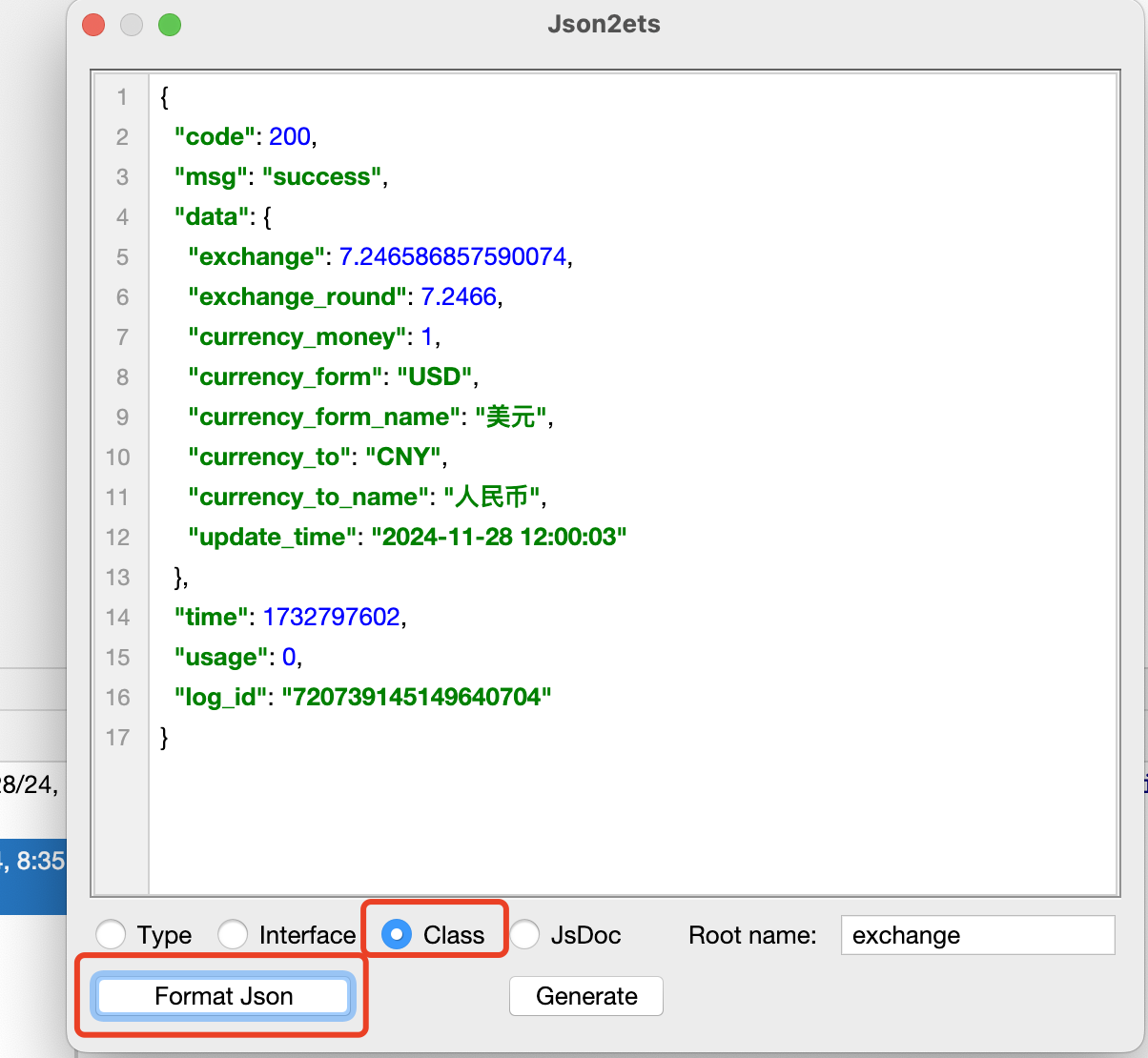
去生成一个 class 的一个类,格式化
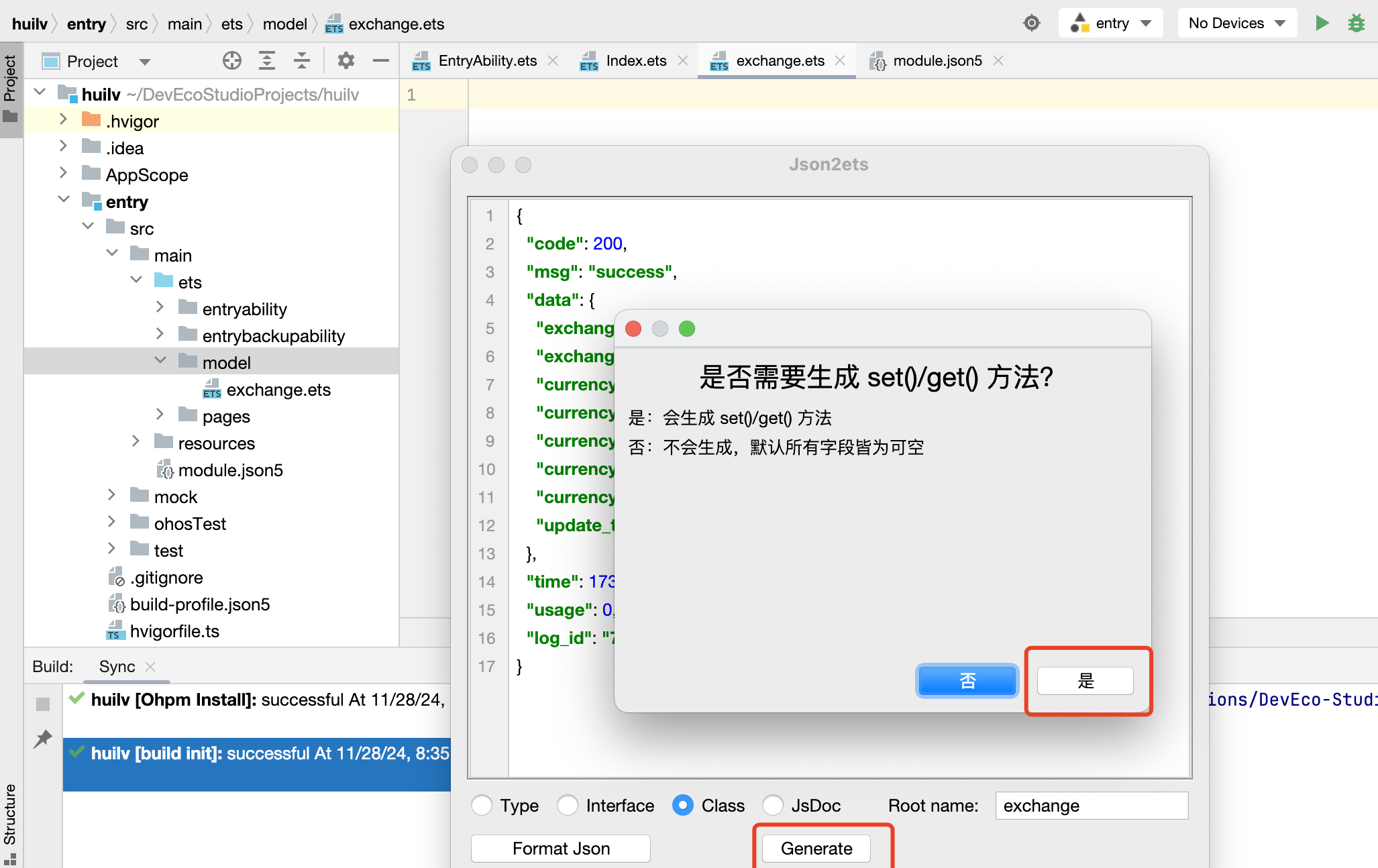
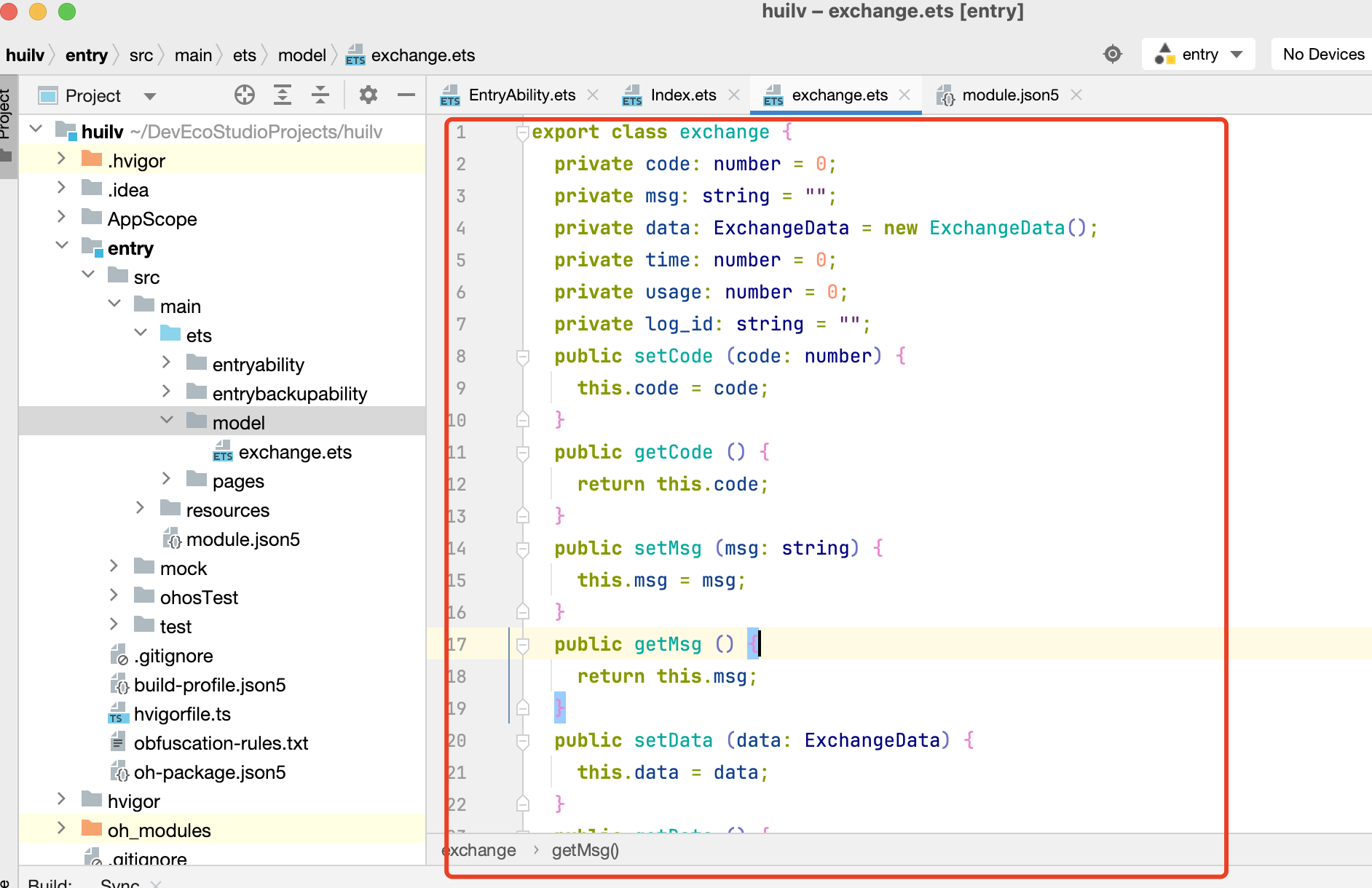
首次加载的时候,用aboutToAppear() 的一个这样的一个生命周期,然后去执行一次的 get data。
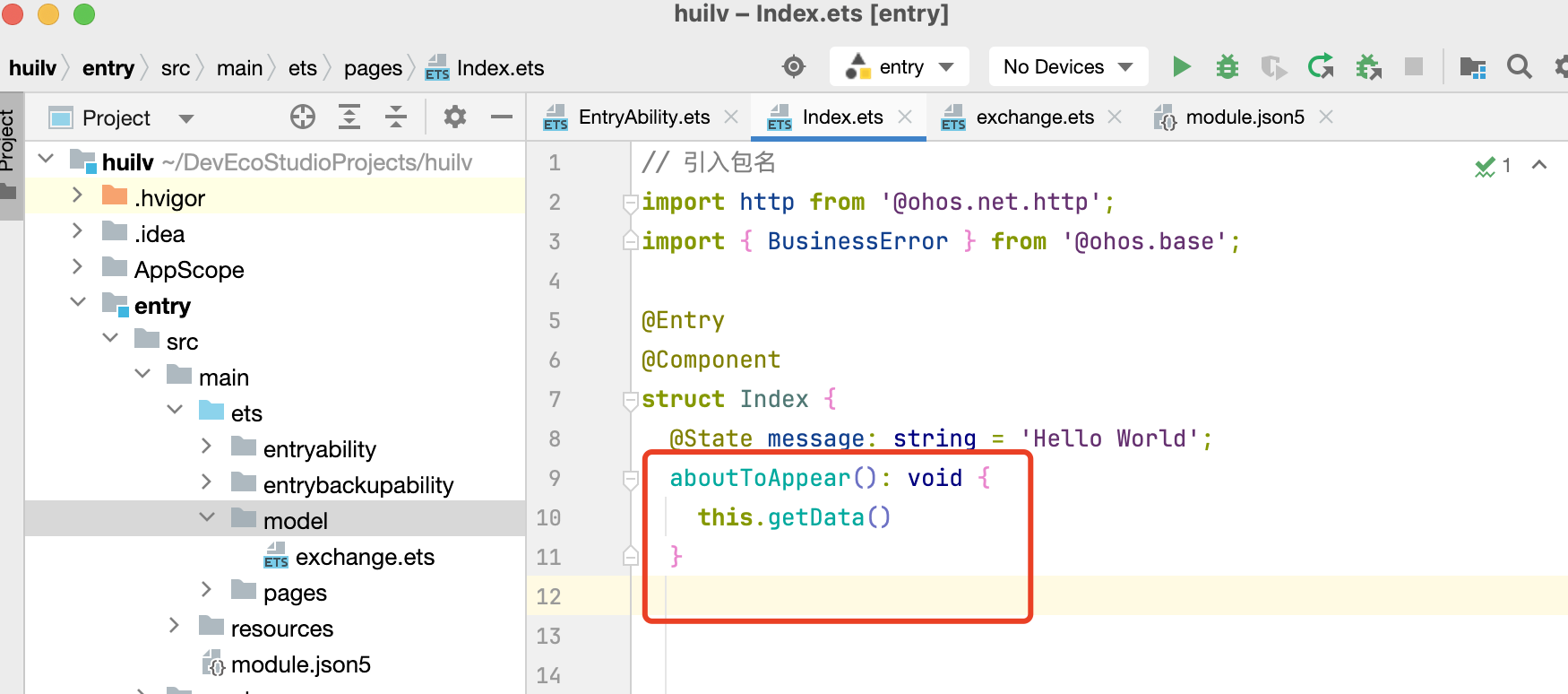
现在打个断点去调试啊。所以这里面大家要注意到,就是我们在请这个刚开始做开发的时候,我们可以点击这边的一个 debug 的一个按钮,方便大家去做调试,我们看能不能跑进去。跑进来以后我们看一下数据是不是拿到了,然后拿到的其实就是刚才我们在测试的时候的这样的一个数据,我们说明这个数据是正确的。
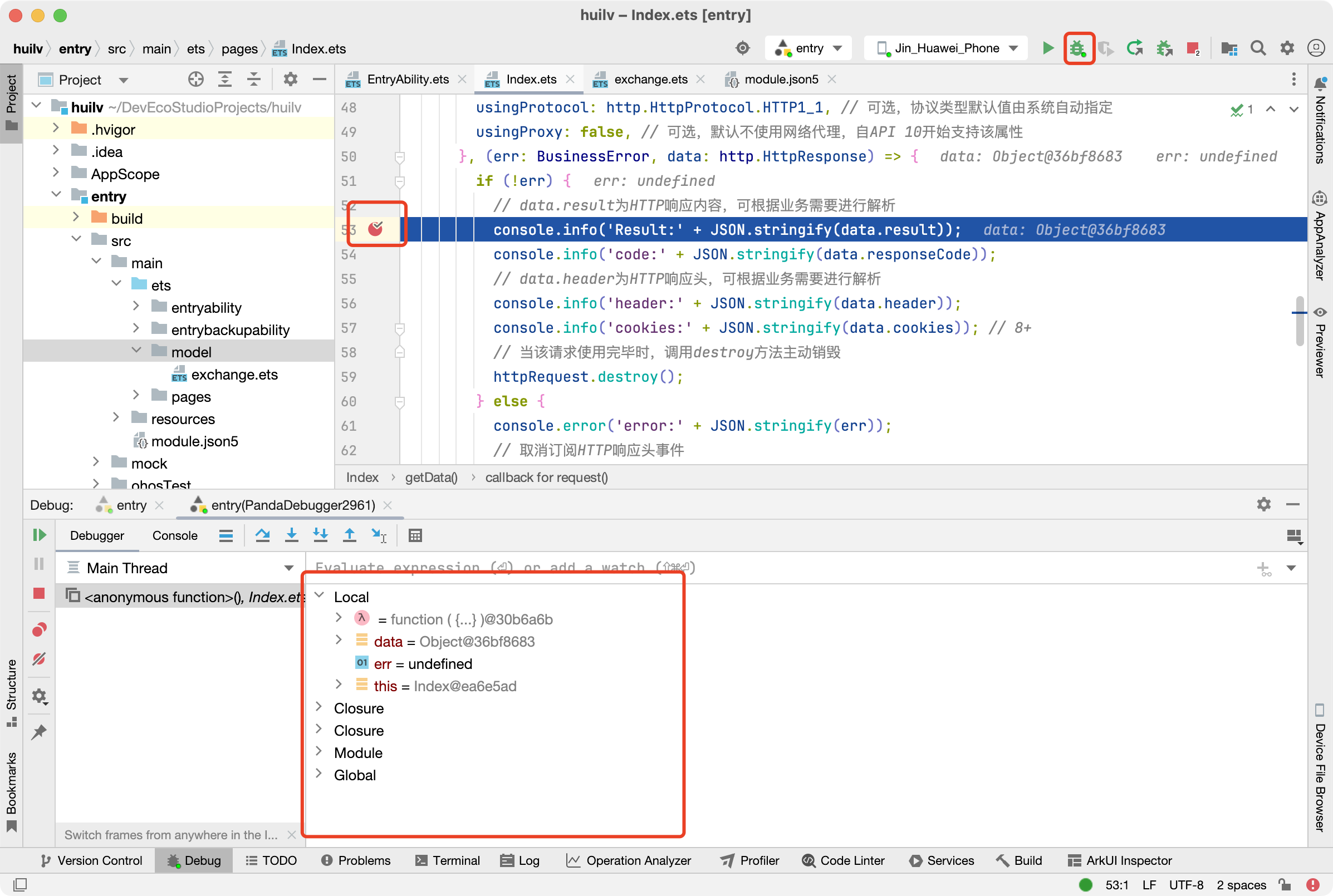
首先,需要将其转换为字符串类型。这是因为直接操作会导致报错,而报错的原因是缺少必要的模块导入。至于如何完成模块导入,有以下几种方式:
1. 可以直接在开发工具中点击提示选项,自动完成导入。
2. 如果工具未能正确识别模块,还可以手动进行导入操作。例如,通过 import 语句明确导入所需的模块。
这两种方式都能够有效解决问题,确保代码正常运行。
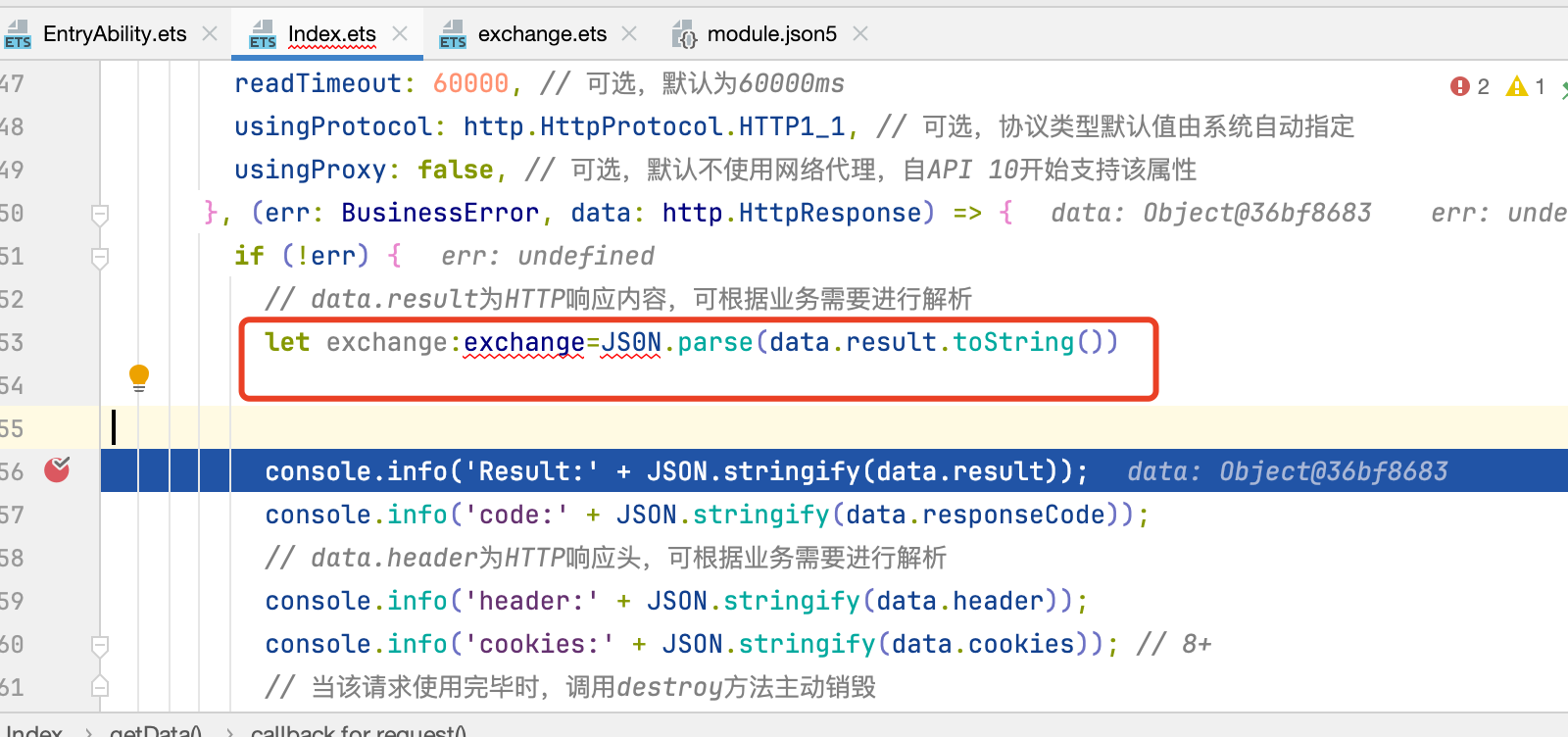
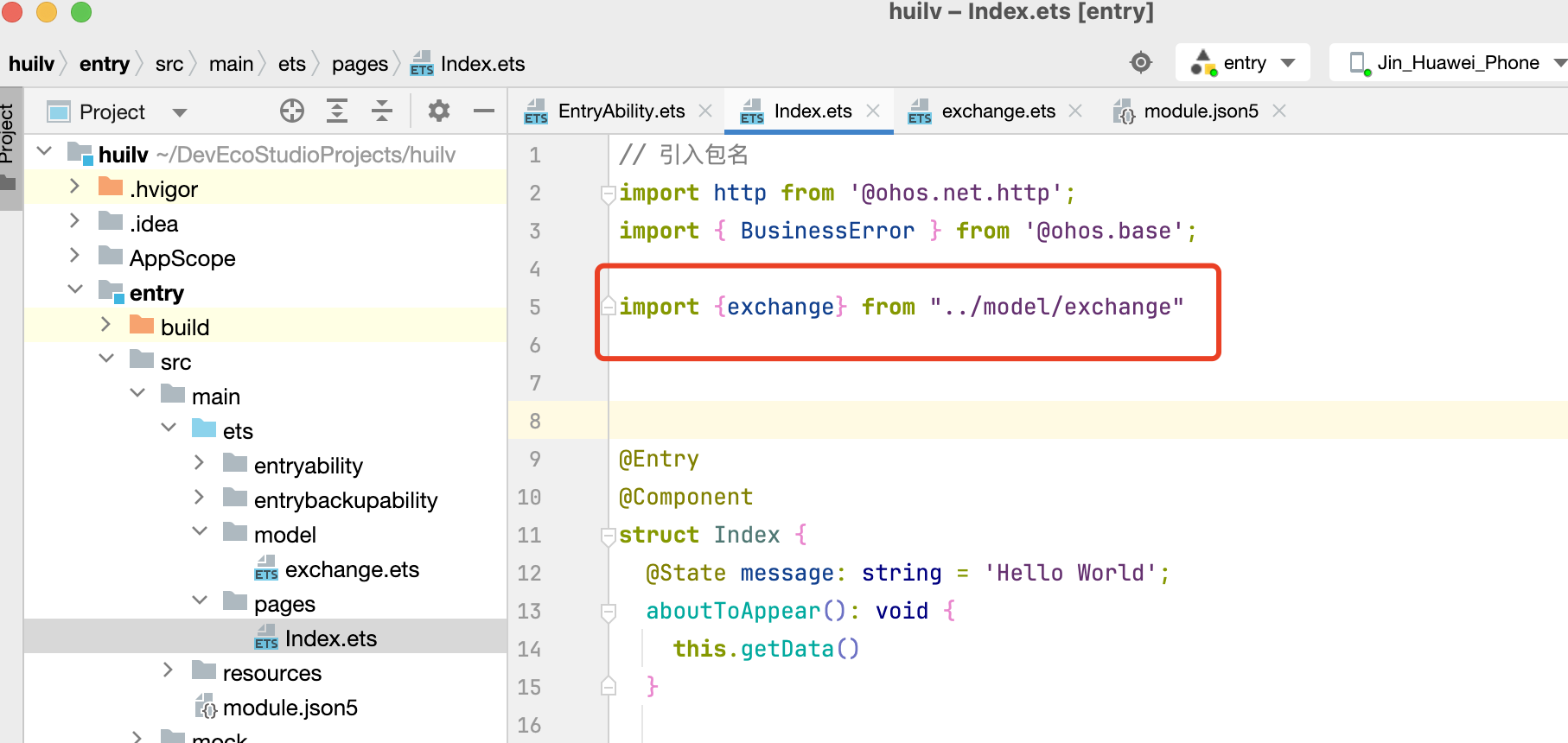

现在,我们需要全局定义一个变量,并实现数据刷新的功能。例如,可以创建一个 set 方法,专门用于更新数据。接着,定义一个类用于数据的观测和管理,以便更加高效地处理和维护相关的状态。

Index.est完整代码
```typescript
import http from '@ohos.net.http';
import { BusinessError } from '@ohos.base';
import { exchange, ExchangeData } from '../model/exchange';
@Entry
@Component
struct Index {
@State value: number = 0;
@State exchangeData:ExchangeData=new ExchangeData()
aboutToAppear(): void {
this.getData(1)
}
getData(mony:number){
// 每一个httpRequest对应一个HTTP请求任务,不可复用
let httpRequest = http.createHttp();
// 用于订阅HTTP响应头,此接口会比request请求先返回。可以根据业务需要订阅此消息
// 从API 8开始,使用on('headersReceive', Callback)替代on('headerReceive', AsyncCallback)。
httpRequest.on('headersReceive', (header) => {
console.info('header: ' + JSON.stringify(header));
});
httpRequest.request(
// 填写HTTP请求的URL地址,可以带参数也可以不带参数。URL地址需要开发者自定义。请求的参数可以在extraData中指定
"https://v2.alapi.cn/api/exchange",
{
method: http.RequestMethod.POST, // 可选,默认为http.RequestMethod.GET
// 开发者根据自身业务需要添加header字段
header: {
'Content-Type': 'application/json'
},
// 当使用POST请求时此字段用于传递请求体内容,具体格式与服务端协商确定
extraData: {
"token":"qlVquQZPYSeaCi6u",
"money": mony,
"form":"USD",
"to":"CNY"
},
expectDataType: http.HttpDataType.STRING, // 可选,指定返回数据的类型
usingCache: true, // 可选,默认为true
priority: 1, // 可选,默认为1
connectTimeout: 60000, // 可选,默认为60000ms
readTimeout: 60000, // 可选,默认为60000ms
usingProtocol: http.HttpProtocol.HTTP1_1, // 可选,协议类型默认值由系统自动指定
usingProxy: false, // 可选,默认不使用网络代理,自API 10开始支持该属性
}, (err: BusinessError, data: http.HttpResponse) => {
if (!err) {
let exchange:exchange=JSON.parse(data.result.toString())
this.exchangeData = exchange.data!
// data.result为HTTP响应内容,可根据业务需要进行解析
console.info('Result:' + JSON.stringify(data.result));
console.info('code:' + JSON.stringify(data.responseCode));
// data.header为HTTP响应头,可根据业务需要进行解析
console.info('header:' + JSON.stringify(data.header));
console.info('cookies:' + JSON.stringify(data.cookies)); // 8+
// 当该请求使用完毕时,调用destroy方法主动销毁
httpRequest.destroy();
} else {
console.error('error:' + JSON.stringify(err));
// 取消订阅HTTP响应头事件
httpRequest.off('headersReceive');
// 当该请求使用完毕时,调用destroy方法主动销毁
httpRequest.destroy();
}
}
);
}
build() {
Column() {
TextInput({
placeholder:"请输入兑换的金额",
text:this.value.toString()
}).type(InputType.Number)
.onChange((e:string)=>{
this.value = parseInt(e)
this.getData(parseInt(e))
})
Text(this.exchangeData.exchange
?.toString())
}
.height('100%')
.width('100%')
}
}
```
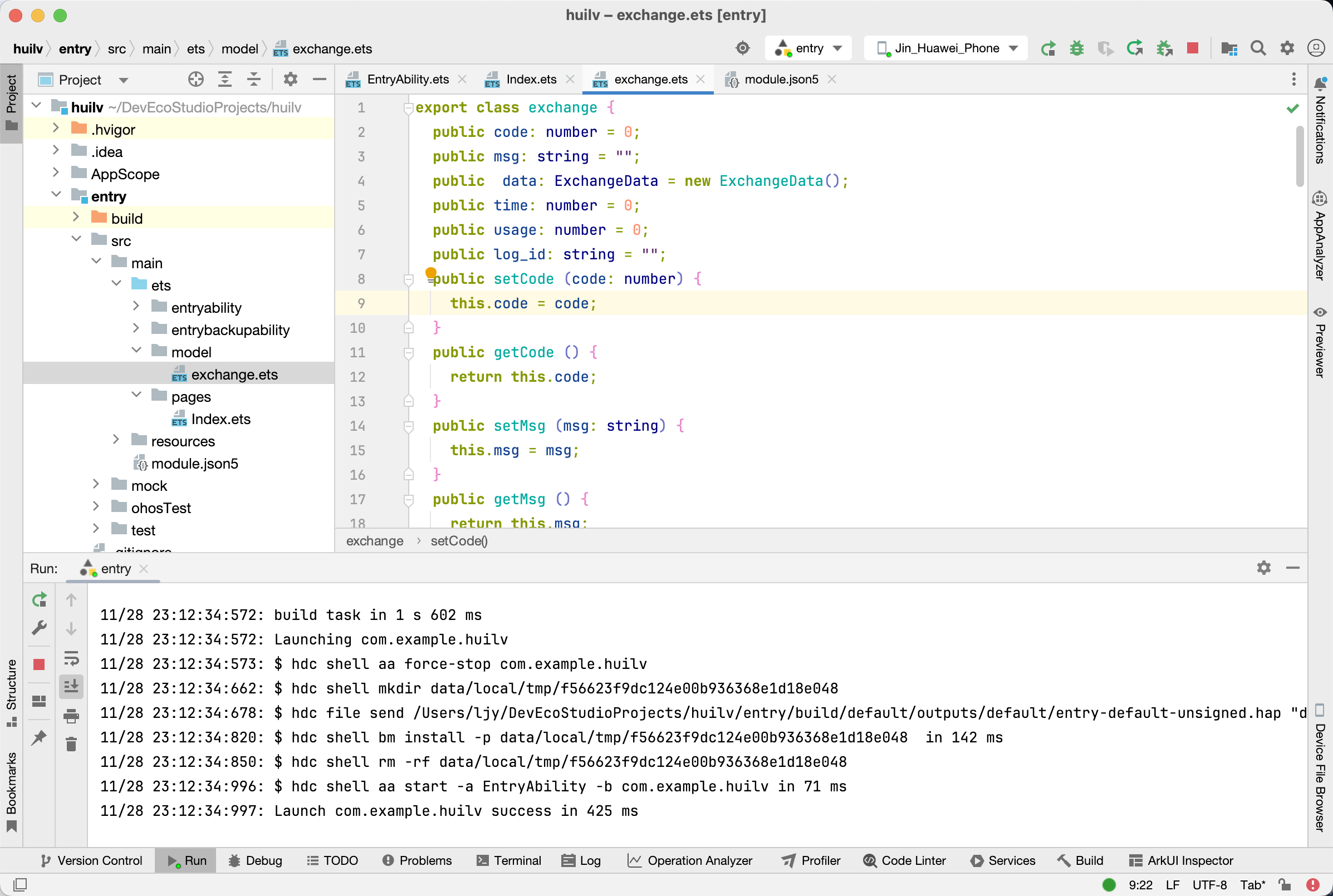
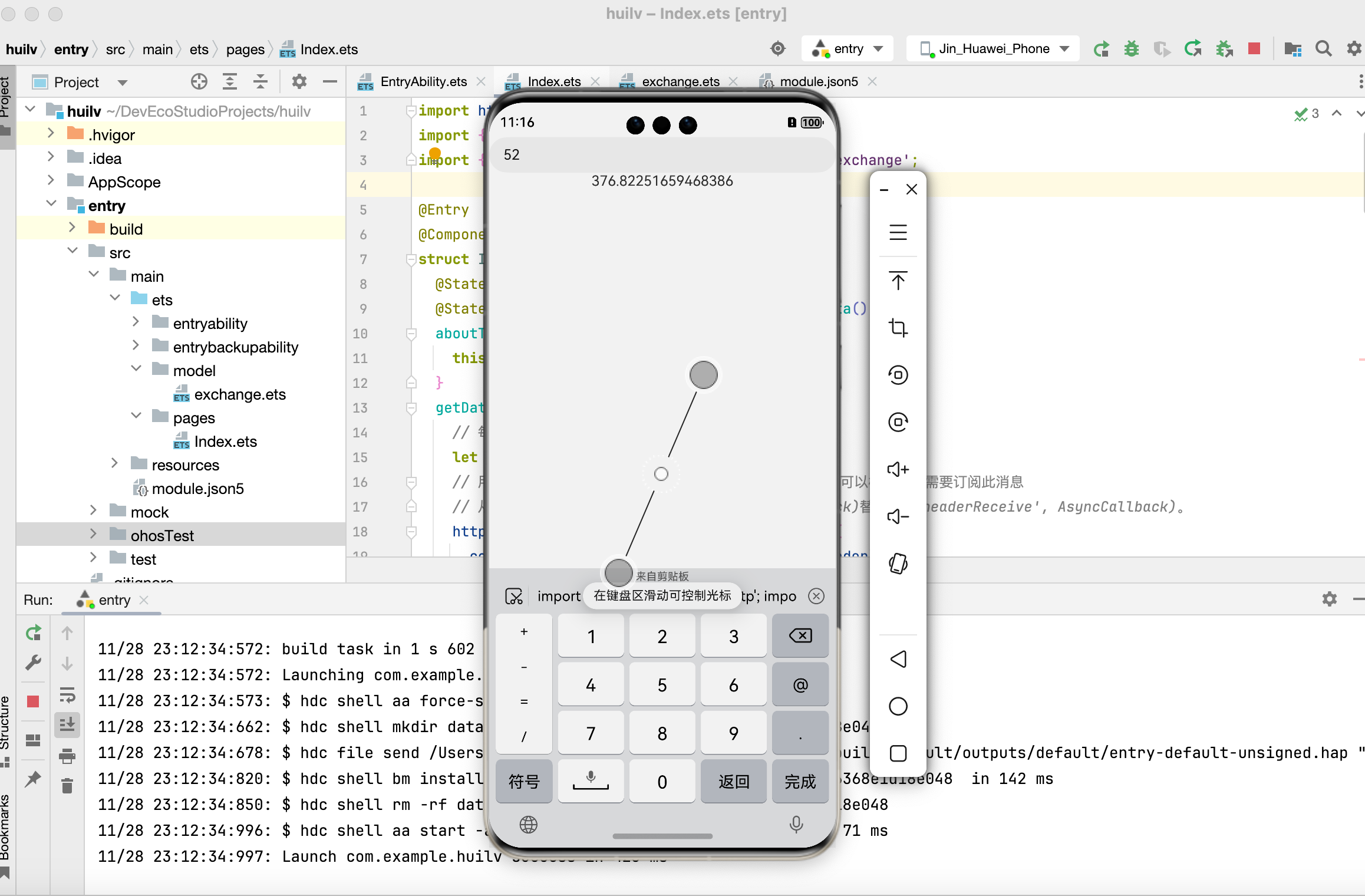
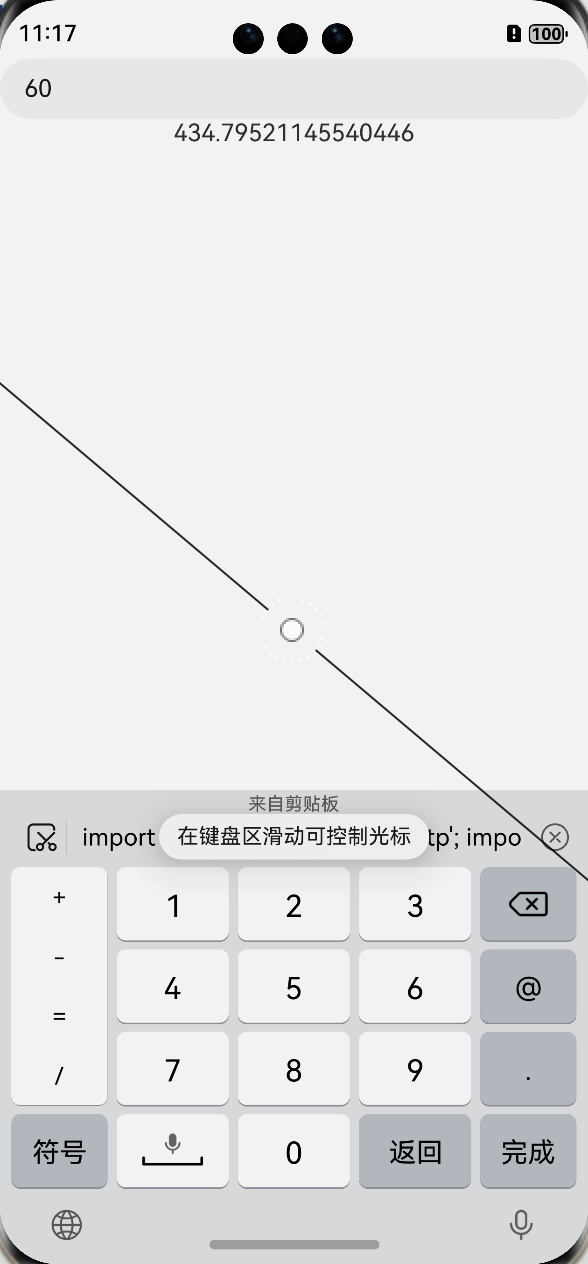
6.调用该对象的off()方法,取消订阅http响应头事件。
7.当该请求使用完毕时,调用destroy()方法主动销毁。
## 4. 重要注意事项
- **网络权限**:开发 Android 应用时,要确保在 `AndroidManifest.xml` 中配置了网络权限。
- **调试和测试**:在模拟器或真实设备中调试时,务必关注请求的权限和数据的正确性。
### 4.1 添加网络权限
在 `AndroidManifest.xml` 文件中添加以下权限:
```xml
<uses-permission android:name="android.permission.INTERNET"/>
```
```
```
|